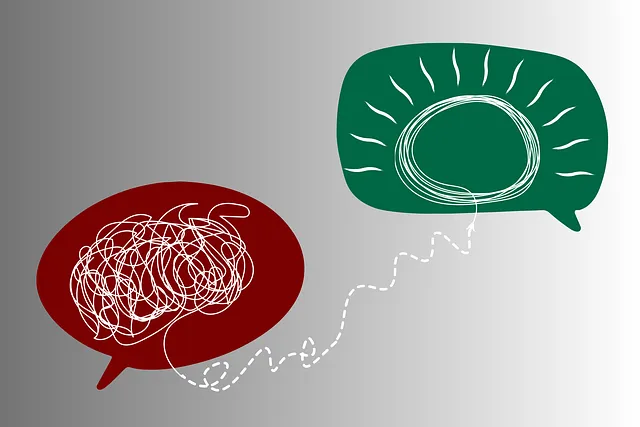The Kaiser Permanente mental health facility in Wheat Ridge, Colorado, prioritizes patient safety through comprehensive risk assessment and evidence-based strategies. By identifying risks like high patient loads and emotional intensity, they implement tailored interventions such as Emotional Intelligence training, stress management protocols, and open communication. This proactive approach enhances patient outcomes, fosters staff resilience, and maintains a supportive work environment. The facility offers innovative care, including Empathy Building Strategies and advanced Communication Techniques, with a focus on mood management and trauma support. Continuous evaluation, peer mentoring, and evidence-based training ensure staff are up-to-date, aligning with the Mental Health Awareness initiative and setting industry best practices at the Kaiser Permanente mental health facility Wheat Ridge.
Mental health professionals face unique risks in their line of work, necessitating a thorough risk assessment. This article explores essential aspects of risk management within a prominent context, using the Kaiser Permanente Wheat Ridge Facility as a case study. We delve into understanding risk assessment fundamentals, analyzing potential hazards, and implementing safety protocols tailored for mental health care. Additionally, continuous evaluation strategies are discussed to ensure a dynamic approach to mitigating risks at this leading Kaiser Permanente facility in Wheat Ridge.
- Understanding Risk Assessment in Mental Health Care
- The Kaiser Permanente Wheat Ridge Facility: An Overview
- Identifying Potential Risks and Hazards
- Implementing Effective Safety Protocols
- Continuous Evaluation and Improvement Strategies
Understanding Risk Assessment in Mental Health Care

Risk assessment is a crucial aspect of mental health care, enabling professionals at Kaiser Permanente mental health facility Wheat Ridge to proactively identify and mitigate potential hazards within their practice. It involves a systematic process of evaluating factors that may pose risks to both clients and practitioners, ensuring a safe and supportive therapeutic environment. By employing evidence-based methods, mental health professionals can anticipate challenges related to client vulnerabilities, complex presentations, or even staff burnout.
This comprehensive assessment goes beyond simply identifying risks; it empowers professionals with the knowledge to implement effective strategies such as Emotional Intelligence, Communication Strategies, and Mindfulness Meditation. These tools not only enhance patient outcomes but also foster a resilient and adaptable work environment at Kaiser Permanente mental health facility Wheat Ridge, ultimately contributing to better patient care and staff well-being.
The Kaiser Permanente Wheat Ridge Facility: An Overview

The Kaiser Permanente Wheat Ridge Facility stands as a beacon for mental health services, offering comprehensive care within a specialized environment. This renowned facility is dedicated to providing top-tier support for individuals navigating complex mental health challenges. With an emphasis on patient-centric care, it serves as a hub for various therapeutic interventions and recovery programs.
Located in the heart of Wheat Ridge, Colorado, the Kaiser Permanente center has gained recognition for its innovative approaches to mental healthcare. Here, professionals employ evidence-based practices, including Empathy Building Strategies, to foster strong doctor-patient relationships. The facility’s expert team also utilizes advanced Communication Strategies, ensuring every patient feels heard and understood. Moreover, they prioritize Mood Management techniques to help individuals gain control over their emotional well-being.
Identifying Potential Risks and Hazards

Identifying Potential Risks and Hazards at Kaiser Permanente Mental Health Facility Wheat Ridge is a crucial first step in ensuring the safety and well-being of both patients and professionals. Mental health facilities, such as those under Kaiser Permanente, are tasked with managing a diverse range of challenges that can impact emotional regulation among both staff and clients. These risks may manifest as stress, burnout, or even exacerbation of existing mental illness.
At Kaiser Permanente Wheat Ridge, risk assessment should consider factors like high patient load, complex cases, and the inherent emotional intensity of working with individuals seeking self-esteem improvement and mental illness stigma reduction efforts. By proactively identifying these hazards, the facility can implement tailored strategies to mitigate them. This may include staff training on stress management, clear protocol for handling challenging situations, and fostering an environment that encourages open communication and support among colleagues.
Implementing Effective Safety Protocols

At a Kaiser Permanente mental health facility in Wheat Ridge, effective safety protocols are implemented to ensure the well-being of both patients and professionals. This involves establishing clear guidelines for crisis management, with a focus on early intervention strategies. Mental health experts at this facility are trained to recognize signs of distress or escalating symptoms, enabling them to promptly initiate appropriate interventions such as de-escalation techniques and stress reduction methods.
The Wheat Ridge mental health center prioritizes trauma support services, recognizing that many individuals present with complex trauma histories. They offer specialized mood management programs tailored to individual needs, incorporating evidence-based practices for resilience building and emotional regulation. By fostering a culture of safety through these comprehensive protocols, the Kaiser Permanente facility aims to create a supportive environment conducive to healing and recovery.
Continuous Evaluation and Improvement Strategies

At a leading mental health facility like Kaiser Permanente Wheat Ridge, continuous evaluation and improvement strategies are vital components of their comprehensive risk assessment for mental health professionals. Regular reviews of clinical practices, patient feedback, and outcomes data enable the team to identify areas that require enhancement, ensuring up-to-date knowledge and skills among staff. This dynamic approach aligns with the Mental Health Awareness initiative, fostering an environment where learning is ongoing.
The design of Mental Health Education Programs plays a pivotal role in this process. By incorporating interactive workshops, peer mentoring, and evidence-based training, Kaiser Permanente Wheat Ridge encourages professionals to reflect on their practices and adapt to changing standards. Such initiatives not only mitigate risks but also enrich the overall mental health care experience for both practitioners and patients, setting an example for best practices within the industry.
Mental health professionals at the Kaiser Permanente Wheat Ridge Facility face unique challenges that demand robust risk assessment strategies. By understanding risk assessment, identifying potential hazards, and implementing effective safety protocols, the facility can ensure a safer environment for both patients and staff. Continuous evaluation and improvement are paramount to staying ahead of emerging risks, making this comprehensive approach essential for the well-being of everyone involved, in line with best practices at Kaiser Permanente mental health facilities.






